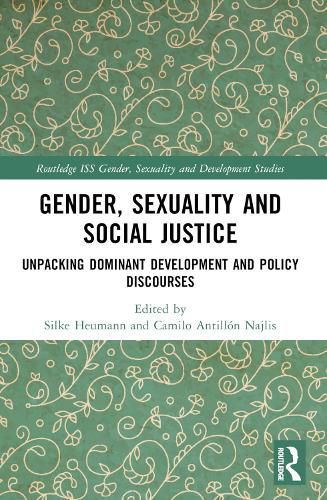Readings Newsletter
Become a Readings Member to make your shopping experience even easier.
Sign in or sign up for free!
You’re not far away from qualifying for FREE standard shipping within Australia
You’ve qualified for FREE standard shipping within Australia
The cart is loading…






This book addresses the intersections of gender, sexuality and social justice in relation to dominant development and policy discourses and interventions. Bringing together young scholars from Latin America, Africa and Asia, the book challenges dominant assumptions on sexuality in development discourse, policy and practice and proposes alternative approaches.
Reflecting on both the 'global north' and the 'global south', this book investigates key social justice issues, from teenage pregnancy, child marriage discourses, sexual empowerment, to sexual diversity, female imprisonment and sexuality, militarism and sexuality, anti-trafficking policies and processes of racialization and othering in the context of migration. Overall, the book challenges binary constructs and argues for an intersectional perspective on gender and sexual diversity as a problem of structural inequality that interacts with other systems of inequality, based on race, age, class and geopolitics.
This book will be of interest to social scientists and activists, as well as development scholars and practitioners engaging with questions of gender, sexuality and social justice.
$9.00 standard shipping within Australia
FREE standard shipping within Australia for orders over $100.00
Express & International shipping calculated at checkout
This book addresses the intersections of gender, sexuality and social justice in relation to dominant development and policy discourses and interventions. Bringing together young scholars from Latin America, Africa and Asia, the book challenges dominant assumptions on sexuality in development discourse, policy and practice and proposes alternative approaches.
Reflecting on both the 'global north' and the 'global south', this book investigates key social justice issues, from teenage pregnancy, child marriage discourses, sexual empowerment, to sexual diversity, female imprisonment and sexuality, militarism and sexuality, anti-trafficking policies and processes of racialization and othering in the context of migration. Overall, the book challenges binary constructs and argues for an intersectional perspective on gender and sexual diversity as a problem of structural inequality that interacts with other systems of inequality, based on race, age, class and geopolitics.
This book will be of interest to social scientists and activists, as well as development scholars and practitioners engaging with questions of gender, sexuality and social justice.